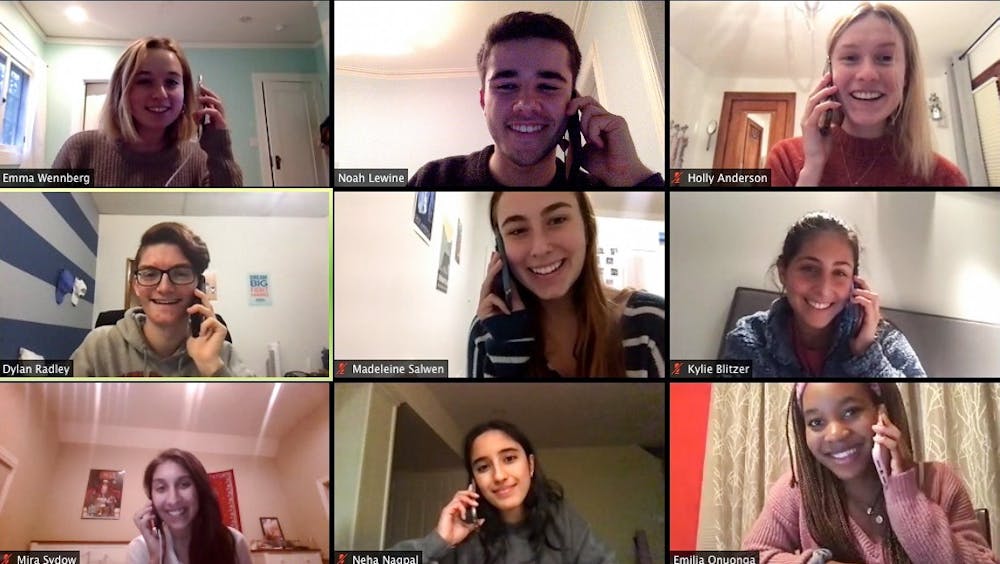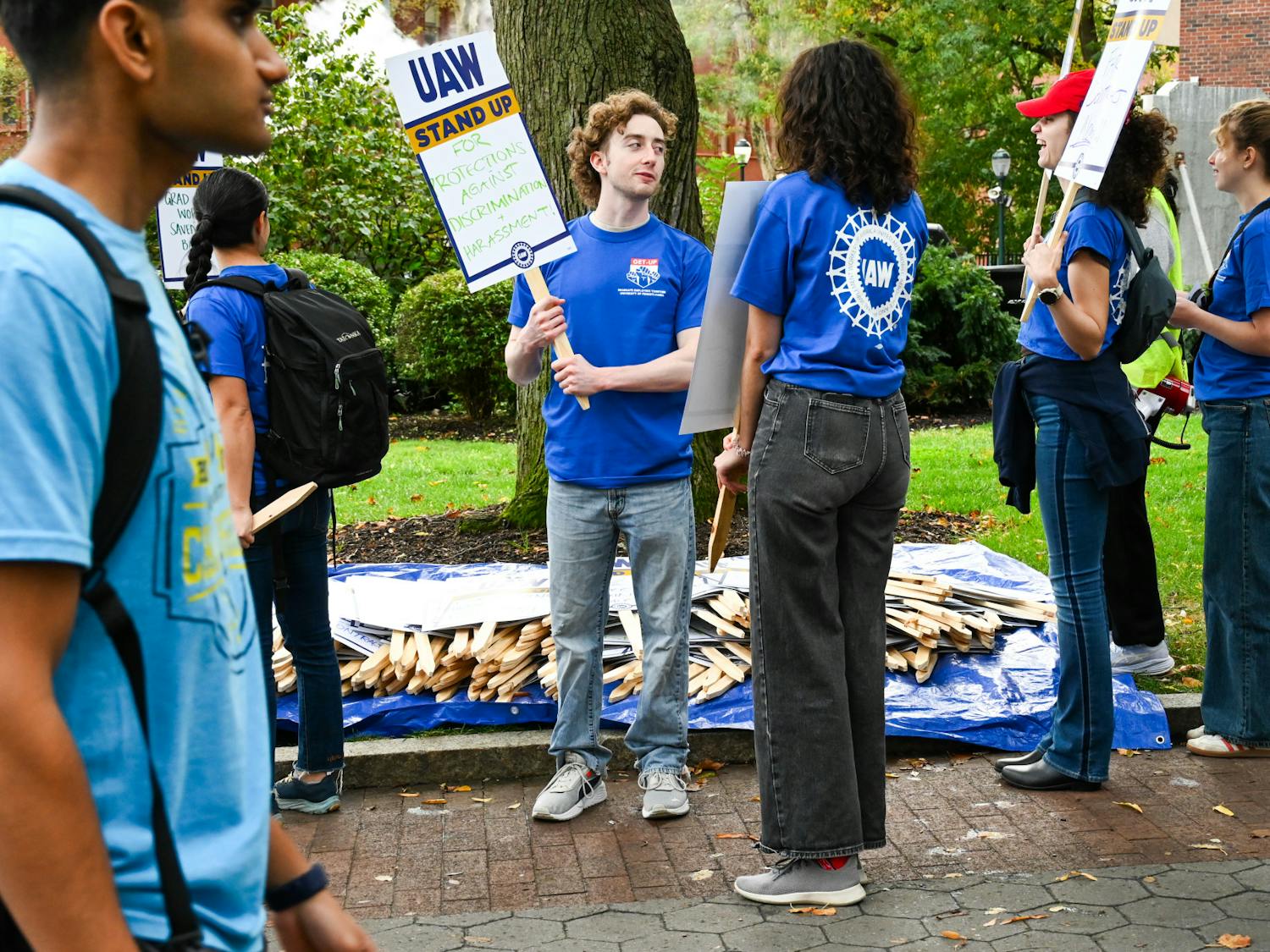Less than a month out from the Georgia Senate runoff elections, Penn Democrats members are pulling out all the stops in an effort to turn the Senate blue.
After Georgia's historic blue flip helped former Presidential Professor of Practice and President-elect Joe Biden clinch the electoral college win, all eyes once again turn to the state ahead of the Jan. 5 runoff elections, which will decide partisan control of the Senate. Penn Dems has organized weekly virtual phone banking events in support of Jon Ossoff and Rev. Raphael Warnock, who will face off against GOP opponents, Sen. David Perdue and Sen. Kelly Loeffler, respectively.
Runoff elections refer to the follow-up race which is held after the initial election when neither candidate received a majority of votes. Georgia and Louisiana are the only two states in which runoff elections are required for all congressional, state executive, and state legislative elections when a candidate does not receive a majority in the general election.
During phone banking events, held every Monday evening over Zoom for the past two months, Penn Dems members urge eligible Georgia voters to vote blue. The events also help build community in the club during the remote semester, as members get together on Zoom while calling voters.
Although attendance varies week to week, College sophomore and Penn Dems' incoming Political Director Noah Lewine said that roughly 10-25 students can be expected in a given one hour phone banking session. The phone banks will continue to be held every upcoming Monday until the election, and members of the Penn Dems executive board speculate that attendance will likely grow as students finish their final exams and the election gets closer.
Lewine said he is hopeful that, should Ossoff and Warnock secure their Senate seats, the Biden administration will have a much easier time carrying out its agenda.
"I think it's clear that we elected Joe Biden as a country, and as young people, because we want to see his legislative agenda in action in the coming years. And the key to that is to have a unified government," Lewine said. "Right now, we're very close to it, and if we can take both seats in Georgia, then we'll be much closer to achieving that goal."
Youth voters comprised 21% of Georgia's total votes, which was the highest vote share among young people in the presidential election of any state in the country. Lewine called this statistic a "really promising sign" for the Democrats' chances in the upcoming Georgia runoffs.
RELATED:
Penn Dems shifts focus to getting out the vote in Georgia's Senate runoff elections
Penn student leaders greet Biden's victory but vow to keep the president-elect accountable
"Above all else, I believe that young people are voting with the Democratic party, as shown in Georgia, because the Democratic politics are the politics of the future generation," he said. "Young people really believe in the message that Democrats are giving them for the future of this country."
College sophomore and outgoing Penn Dems Communication Director Emma Wennberg thinks that the recent Democratic slant of Georgia, a traditionally Republican stronghold, is a testament to the effectiveness of the work of political organizers there.
"Above all, it shows that no state is truly unflippable," she said. "Who would have thought that not only the presidency, but also the control of the Senate, could rest in a state like Georgia?"
Wennberg added that Black and Latinx organizers played a large role in combating Georgia's history of voter suppression, and their work should not go unnoticed.
She referenced the work of Georgia-based voting rights activist Stacey Abrams as an example of the work she believes Democratic organizations across the nation should emulate. In 2018, Abrams founded Fair Fight, an organization that aims to promote fair elections in Georgia and nationwide, and educate voters about their rights, in response to a midterm election riddled with voter suppression.
"I think it shows that we just need to be putting resources into every state, and every race, regardless of how 'un-winnable' they might seem," Wennberg said. "As we've seen in Georgia, the work of Black women and Black organizers has really paid off. So I think we need to replicate those efforts in other states that might seem un-winnable."
College first-year and Penn Dems member Mira Sydow, who is a Georgia native, echoed Wennberg's sentiments about the important role women of color have played in voter registration efforts in Georgia, both in the presidential election and the upcoming Senate runoff elections.
"The recognition being given to Stacey Abrams and other women of color who organized in Georgia is incredible," she said. "If you're from [Georgia], you know that we have a huge Hispanic population, a huge Black population, [and] a huge immigrant population in general, so these are the people that are really doing the hard work on the ground. It's great seeing them get their recognition."
Sydow added that Penn Dems' phone banks have been particularly meaningful to her as a Georgia resident. She hopes the national attention the elections are receiving, beyond Penn Dems' efforts, is a "good sign" of what's to come.
"I think having so many eyes on Georgia and so many people invested in every part of this election [makes it] much more difficult to suppress voters' voices," Sydow said. "It's really nice having a community of people here [in Penn Dems that] cares so much about it when they aren't as strongly impacted, even though this election is going to be historic for us all."









